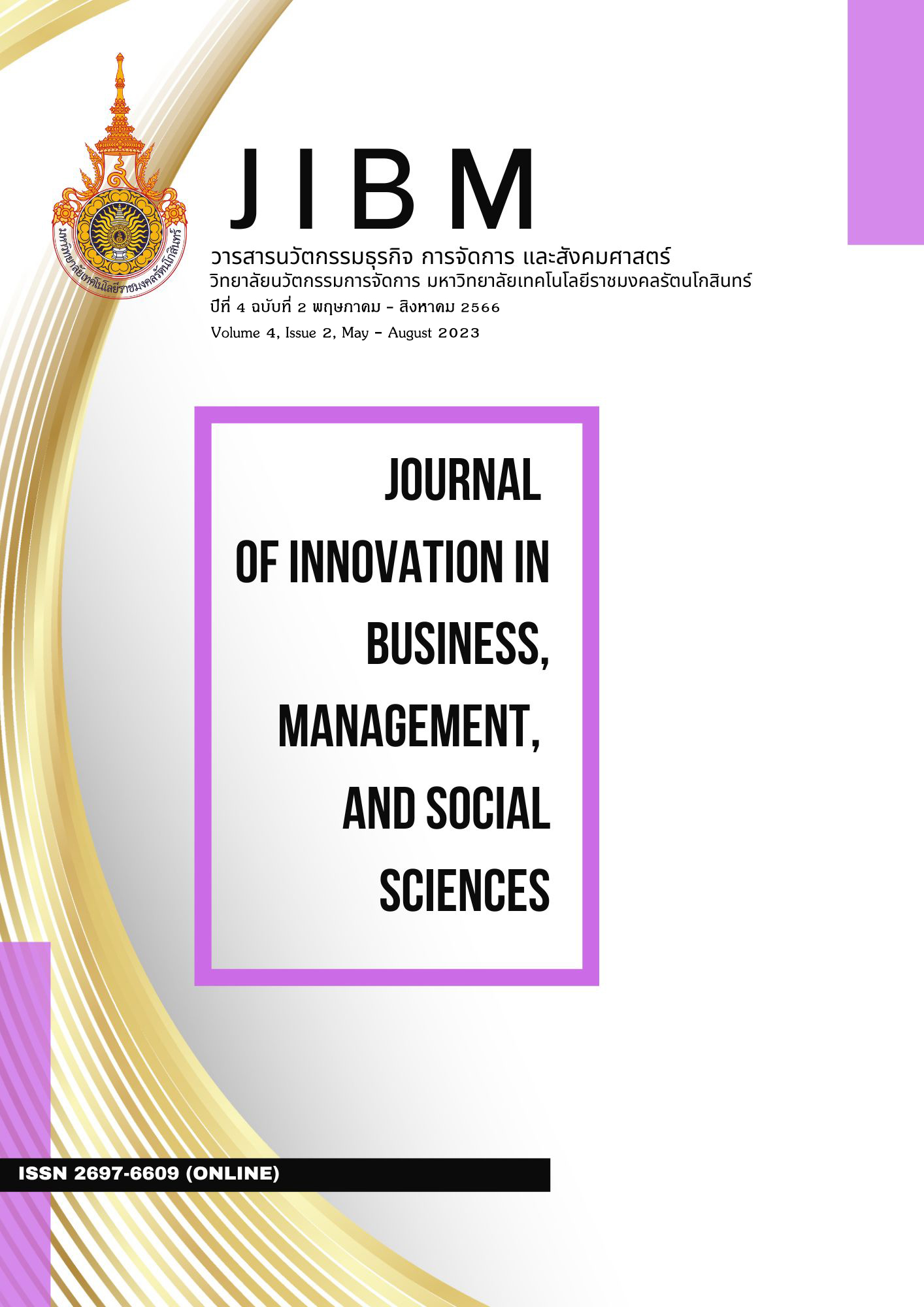มุมมองใหม่บนการแบ่งกลุ่มลูกค้าในตลาดบริการอินเทอร์เน็ตบรอดแบนด์ประจำที่ของอุตสาหกรรมโทรคมนาคมประเทศไทย
คำสำคัญ:
พฤติกรรมลูกค้า, ตลาดบริการอินเทอร์เน็ตบรอดแบนด์ประจำที่, การแบ่งกลุ่มลูกค้าบทคัดย่อ
การศึกษานี้มีวัตถุประสงค์เพื่อศึกษาการแบ่งกลุ่มลูกค้าในตลาดบริการอินเทอร์เน็ตบรอดแบนด์ประจำที่ ของอุตสาหกรรมโทรคมนาคมประเทศไทย ซึ่งการศึกษาจะมุ่งเน้นในมิติความสอดคล้องกันระหว่างการแบ่งกลุ่ม ลูกค้าตามกรอบแนวคิดแบบดั้งเดิมอย่างข้อมูลด้านประชากรศาสตร์ ข้อมูลเชิงพื้นที่ ข้อมูลเชิงจิตวิทยา ข้อมูลด้าน พฤติกรรมผู้บริโภค และการตัดสินใช้บริการด้านผลิตภัณฑ์และบริการจากผู้ประกอบการในตลาดบริการอินเทอร์เน็ตบรอดแบนด์ประจำที่ที่ปัจจุบันนั้นมีทั้งหมด 4 ราย ที่ถือครองส่วนแบ่งตลาดด้วยสัดส่วนที่มากกว่าร้อยละ 10.00 อย่าง 1) บริษัท ทรู อินเทอร์เน็ต คอร์ปอเรชั่น จำกัด 2) บริษัท ทริปเปิลที บรอดแบนด์ จำกัด (มหาชน) 3) บริษัท โทรคมนาคม แห่งชาติ จำกัด (มหาชน) และ 4) บริษัท แอดวานซ์ ไวร์เลส เน็ทเวอร์ค จำกัด โดยใช้วิธีวิจัยเชิงคุณภาพโดยการสัมภาษณ์เชิงลึกเพื่อสอบถามถึงปัญหาที่สำคัญและจุดสร้างคุณค่าของลูกค้า นอกจากนั้น ใช้วิธีวิจัย เชิงปริมาณจำนวน 1,589 ราย เพื่อยืนยันจุดเจ็บปวดและจุดสร้างคุณค่าของกลุ่มลูกค้าในตลาดบริการอินเทอร์เน็ตบรอดแบนด์ประจำที่ ผ่านการวิเคราะห์แบบสอบถามด้วยการใช้ค่าสถิติเชิงพรรณนา ค่าสถิติเชิงอนุมาน ค่าถดถอยเชิงพหุคูณ และค่าสัมประสิทธิ์สหสัมพันธ์ ผลการวิจัยพบว่า การแบ่งกลุ่มลูกค้าตามกรอบแนวคิดแบบ ดั้งเดิมไม่มีผลกับการตัดสินใช้บริการด้านประเภทผลิตภัณฑ์และบริการ ในขณะที่การแบ่งกลุ่มลูกค้าตามงาน (Job-ToBe-Done; JTBD) มีผลต่อการตัดสินใจใช้บริการด้านประเภทผลิตภัณฑ์และบริการจากผู้ประกอบการในตลาดบริการ อินเทอร์เน็ตบรอดแบนด์ประจำที่
เอกสารอ้างอิง
Aurier, P., & N'Goala, G. (2009). The differing and mediating roles of trust and relationship commitment in service relationship maintenance and development. Journal of the Academy of Marketing Science, 37(2), 169-183. doi:10.1007/s11747-009-0163-z
Hsu, C. L., Lin, J. C. C., & Chiang, H. S. (2015). Understanding the determinants of online repeat purchase intention and moderating role of habit: The case of online group-buying in Taiwan. International Journal of Information Management, 35(3), 322-332. doi:10.1016/j.ijinfomgt.2014.09.002
Asongu, S. A., & Odhiambo, N. M. (2019). How enhancing information and communication technology has affected inequality in Africa for sustainable development: An empirical investigation. Sustainable Development, 27(3), 419-428. doi:10.1002/sd.1929
Liou, D. K., Yen, H. R., & Tzeng, G. H. (2015). Understanding broadband television users’ continuance intention to use. Industrial Management & Data Systems, 115(9), 1657-1676. doi:10.1108/imds-07-2014-0223
Makanyeza, C., & Mumiriki, E. (2016). Are all customers really the same? Comparing service quality and satisfaction between residential and business telecommunications customers. Acta Commercii, 16(1), 1-11. doi:10.4102/ac.v16i1.348
Mahmoud, M. A., Elbeltagi, I. M., & El-Gohary, H. (2017). Service innovation and customer satisfaction: The role of customer value creation. European Journal of Innovation Management, 20(3), 420-442. doi:10.1108/ejim-09-2017-0117
Dharmeswara, R., Suharyono, & Suharyono. (2023). Faktor yang Memengaruhi Niat Mengadopsi Jasa Fixed Broadband Pada Generasi Y & Z. Jurnal Aplikasi Bisnis dan Manajemen, 9(1), 203-214. doi:10.17358/jabm.9.1.203
Na, K. S., Kim, J. H., & Kim, J. (2018). Digital content as a fast Internet diffusion factor: Focusing on the fixed broadband Internet. Information Development, 34(6), 551-564. doi:10.1177/0266666918811878
Monesi, A., & Belgiawan, P. F. (2023). Factors Influencing Customer Purchase Intention in B2B Telecommunication Industry. International Journal of Current Science Research and Review, 6(1), 1-9. doi:10.47191/ijcsrr/v6-i1-42
Abd-Elrahman, A. A., & Kamal, M. M. (2020). Relational capital, service quality and organizational performance in the Egyptian telecommunication sector. International Journal of Emerging Markets, 15(6), 1162-1182. doi:10.1108/ijoem-11-2019-0983



